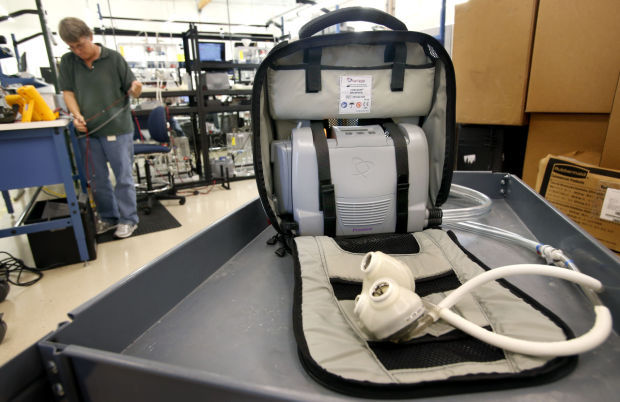Tucson-based artificial heart maker SynCardia Systems won bankruptcy court approval Friday to sell its assets to a private-equity firm that plans to recapitalize the company.
The asset sale allows SynCardia to emerge from Chapter 11 bankruptcy reorganization as a new company that will continue to provide artificial hearts and further develop the technology.
SynCardia filed for Chapter 11 bankruptcy protection on July 1 in Delaware, proposing to sell all of its assets to its senior secured creditor, Sindex SSI Lending LLC, in an effort to save the company.
Sindex, an affiliate of the Philadelphia-based private-equity firm Versa Capital, purchased about $22 million worth of SynCardia’s senior debt at a steep discount in June.
Sindex bid $19 million of that debt in a so-called credit bid for SynCardia, plus $150,000 in cash, to buy the company.
The so-called “stalking horse” deal was subject to higher and better offers, but no competing bids were filed by a deadline Tuesday, SynCardia said in court documents.
U.S. Bankruptcy Judge Mary F. Walrath gave her final approval of the sale to Sindex on Friday. She also approved a motion to change the name of the bankrupt entity to TAH Windown, which will continue as the debtor to wind down assets not included in the sale.
SynCardia, maker of the only artificial heart approved in the U.S., Europe and Canada as a bridge to transplant, has continued to service hospitals and patients and otherwise operate, with debtor financing provided by Sindex.
SynCardia says more than 1,500 of its artificial hearts have been implanted since the company was formed in 2001 with technology from the original Jarvik-7 heart, including nearly 500 since January 2012.
SynCardia officials would not comment on Friday. The company employed about 100 people as of last year.
In a news release in mid-August, the company said that after its emergence from bankruptcy, it would continue work on an improved version of its portable heart driver and complete an FDA-approved clinical study of a smaller, 50cc total artificial heart to fit women and other smaller patients, already approved for use in Europe.
SynCardia also said it planned to proceed with another FDA-approved study to use the company’s artificial heart as a long-term “destination therapy” for patients who are not eligible for transplants.
While SynCardia will live on, it leaves behind millions of dollars in unpaid debts, and shareholders, including many local investors, who will get nothing from the case.
SynCardia in its bankruptcy filing declared total assets of about $17 million against $53.6 million in debt, including $11.6 million in unsecured debt that will go unpaid.
Among the unsecured debts is a $312,500 debt to the former University Medical Center, now part of Banner Health, for an unspecified purchase agreement dating to 2002.
UMC’s involvement with SynCardia dates to the 1990s, when it partnered with Utah researchers to pick up development of the artificial-heart technology after failed attempts to commercialize the original Jarvik-7 heart.
University of Arizona officials confirmed the debt would go unpaid but could not verify what SynCardia purchased from UMC.
Versa specializes in buying and recapitalizing troubled companies. Its portfolio of turnaround projects includes retailers the Wet Seal, Avenue Stores and Black Angus Steakhouses and manufacturers Bell and Howell and Polartec.





